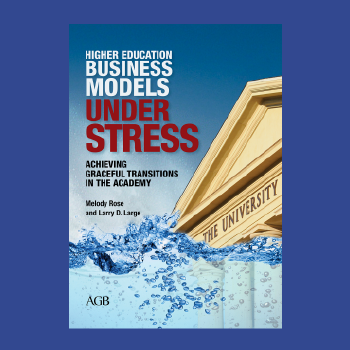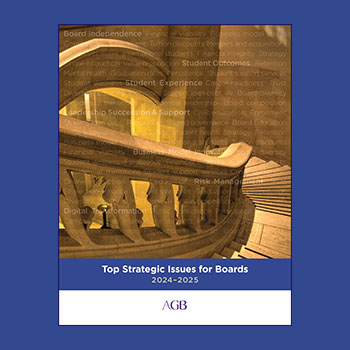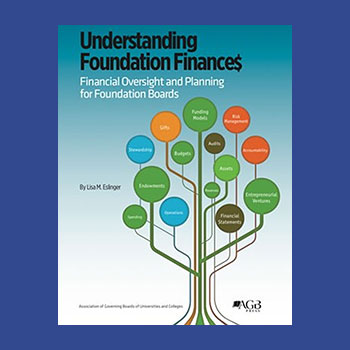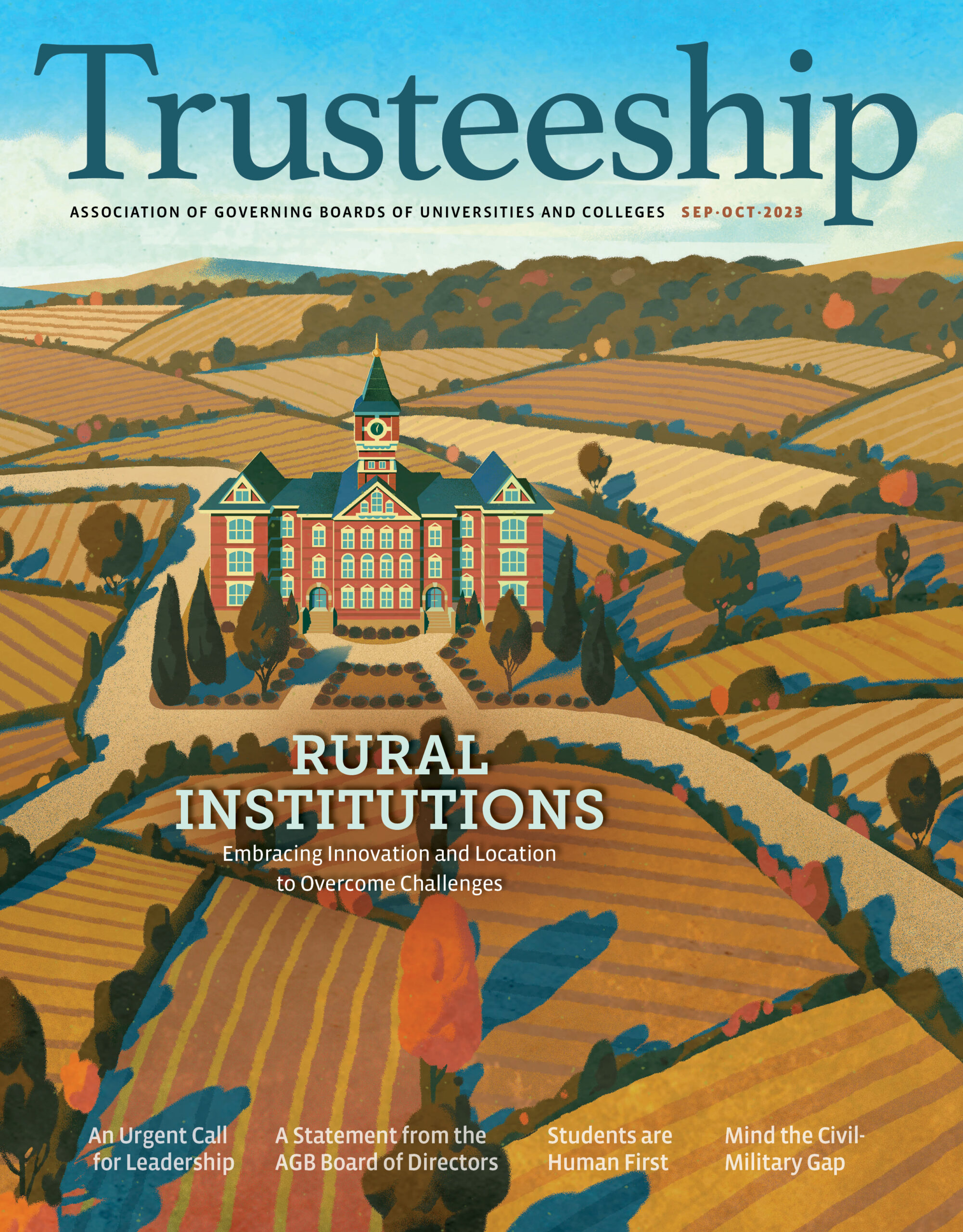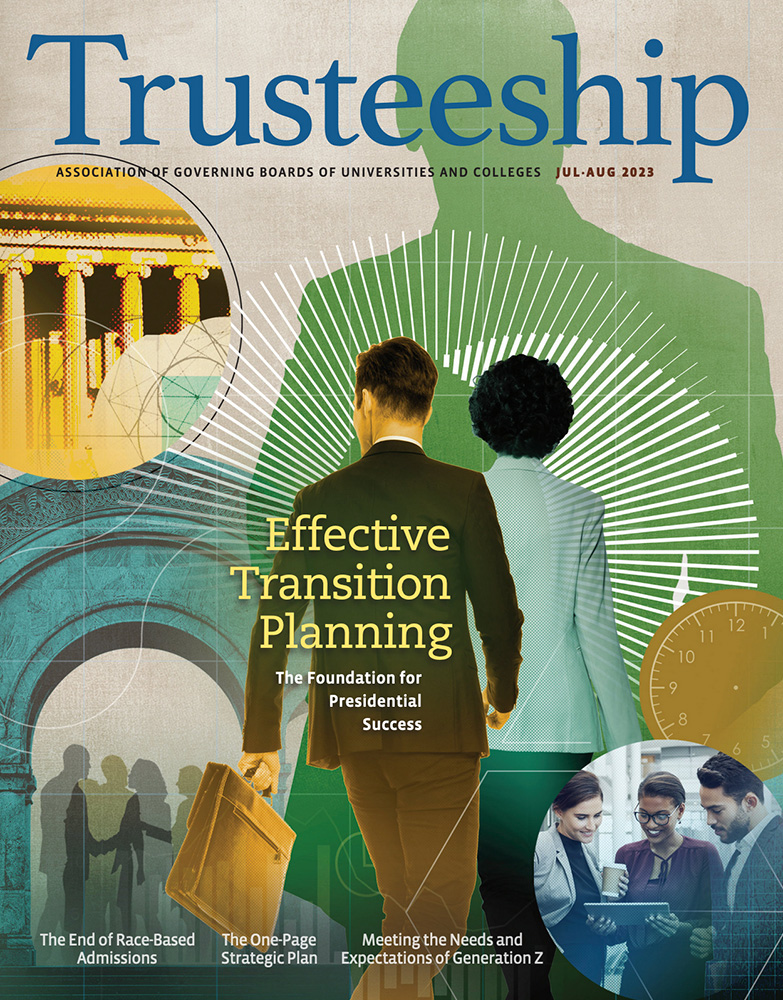Why this is important.
The business model of higher education is unlike that of any other industry in America’s economy. Colleges and universities traditionally charged less than the full cost of educating students because they made up the difference through government support and other revenue streams. Yet making up the difference is becoming increasingly difficult; institutions struggle with their dependence on waning government support and unpredictable revenue streams.
It is the responsibility of all board members to understand the complexities of their institution’s finances and business model. Boards must take an active role in overseeing the finances by strategically planning for the short-term and long-term health of their institutions. Doing so safeguards institutional viability while also broadening the public’s understanding of today’s higher education business model and opportunities for evolution.
Questions for boards.
Click below to reveal key questions for your board to consider:
Strategy and Board Focus
Consequential Questions:
- Is our board focused on broad, long-term, strategic issues rather than on narrow, short-term operational concerns that are more tactical in nature?
- What are the most pressing strategic issues our board must resolve for the long-term health of our institution? Is our board putting these items on the agenda for meetings and making critical decisions?
Source:
Board Expertise and Insights
Consequential Questions:
- Is our board familiar with the institution’s major revenue streams— including tuition, the endowment, philanthropy— and whether they are healthy and diversified? Does the institution have alternative plans in place in case one of those revenue sources starts to contract?
- Does our board include members with the skills, knowledge, and background needed to plan for the financial future of our institution? How can our board best achieve collective “financial literacy” while recognizing that not all board members need to be financial experts?
- Does our board have a system for tracking key financial metrics that provides data relevant to long-term financial decision-making?
Source:
Business Model and Tactics
Consequential Questions:
- How many students pay full tuition, how many receive financial aid, and what is the institutional discount rate? Is that rate sustainable over the long haul?
- Do recent fiscal results and future financial and demographic trends point to a need to rethink or reform our institution’s current business model? What changes would lead to greater financial stability and long-term sustainability?
- Does our institution have a well-thought-out financial plan, including cash on hand or reserves, to deal with unexpected losses?
- How much is our institution working to increase efficiencies through cost cutting, new technology, and other means?
Source:
Recommended resources.
We carefully curated these staff-picked resources for you:
Higher Education Business Models Under Stress
2021
Melody Rose and Larry D. Large
Higher Education Business Models Under Stress
Podcast
Featuring Melody Rose and Larry D. Large
The Business of Higher Education
2017
AGB


